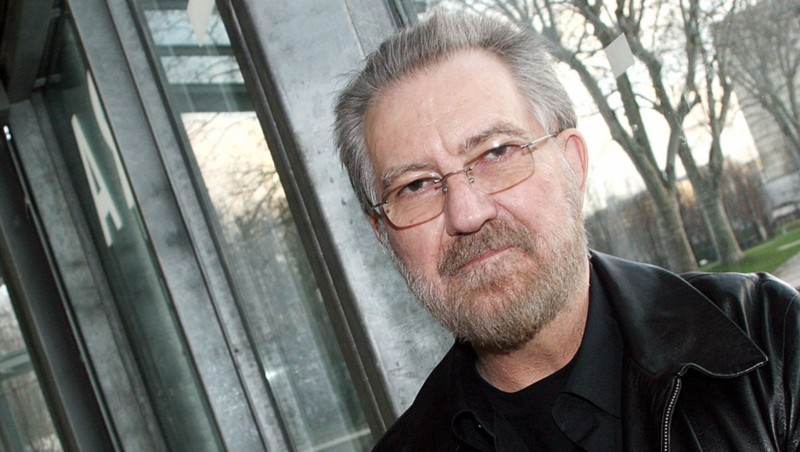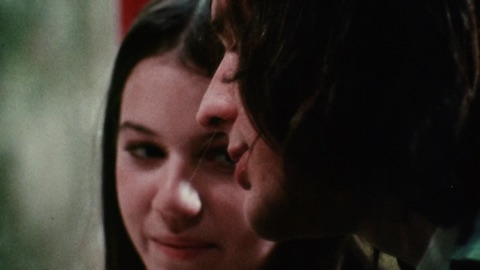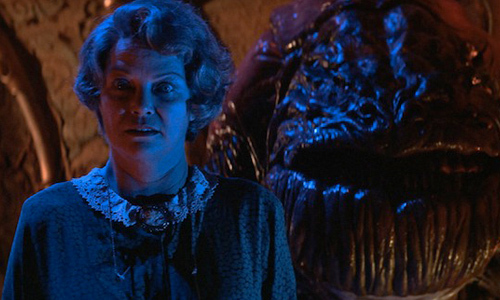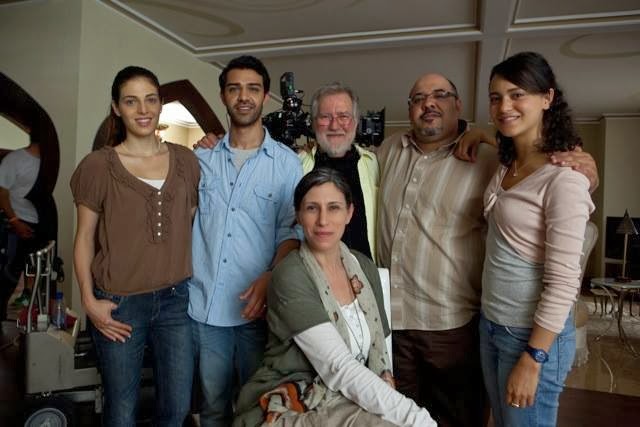THE NEGLECTED WORKS OF TOBE HOOPER
 Monday, August 28, 2017 at 10:05AM
Monday, August 28, 2017 at 10:05AM Obituary platitudes for the late Tobe Hooper, who passed away in Los Angeles on August 27 at the age of 74, have rightly focussed upon such timeless works as The Texas Chainsaw Massacre (1974), Salem’s Lot (1979), The Funhouse (1981), Poltergeist (1982) and Lifeforce (1985).

Yet despite a career plagued by troubled productions and waning industry acceptance, there are rarely mentioned, even openly derided films made by the Texan native that exhibit his consummate craftsmanship and a dedication to the horror genre that never waivered…
EGGSHELLS (1969) A full 5 years before he unleashed The Texas Chainsaw Massacre, Hooper worked with the core creative team of actor/writer Kim Henkel and actor Allen Danzinger on his trippy, experimental debut. A psychedelic artefact impenetrably of its time, the director (taking a break from his lecturing duties) shot his oddity in his hometown of Austin, utilising in-camera effects work, non-conforming yet precisely framed cinematography and Euro-influenced animated sequences. Often taking a backseat to Hooper’s experimental technique, the narrative follows the intertwined lives of two counter-culture couples facing a new world of adult responsibility; mixing things up is a mute child living in the basement who shares a supernatural bond with an otherworldly force. Hooper calls the thing in the cellar, “a crypto-embryonic hyper-electric presence”; of his debut feature, he says, “It’s a real movie about 1969, kind of verite but with a little push, improvisation mixed with magic. It was about the beginning and end of the subculture.”
A full 5 years before he unleashed The Texas Chainsaw Massacre, Hooper worked with the core creative team of actor/writer Kim Henkel and actor Allen Danzinger on his trippy, experimental debut. A psychedelic artefact impenetrably of its time, the director (taking a break from his lecturing duties) shot his oddity in his hometown of Austin, utilising in-camera effects work, non-conforming yet precisely framed cinematography and Euro-influenced animated sequences. Often taking a backseat to Hooper’s experimental technique, the narrative follows the intertwined lives of two counter-culture couples facing a new world of adult responsibility; mixing things up is a mute child living in the basement who shares a supernatural bond with an otherworldly force. Hooper calls the thing in the cellar, “a crypto-embryonic hyper-electric presence”; of his debut feature, he says, “It’s a real movie about 1969, kind of verite but with a little push, improvisation mixed with magic. It was about the beginning and end of the subculture.”
EATEN ALIVE (1976)
Hooper’s follow-up to …Massacre saw the director revisiting the ‘hillbilly horror’ genre of his 1974 masterpiece. But gone are the dusty backroads and shrieking machinery, replaced by a bold, giallo-influenced studio set rich in dense colour and a new four-legged killing tool. Just as The Texas Chainsaw Massacre drew upon the exploits of serial killer Ed Gein, Eaten Alive reworks the true life terror of one Joe Ball, aka ‘The Alligator Killer’, a 1930s hotel owner from the deep south who would dispose of those who crossed him by feeding them to his pet ‘gator. In an eccentric lead turn, Neville Brand is terrifying as ‘Judd’; amongst the cast are Marilyn Chambers, Hooper’s discovery from …Massacre and on the verge of her X-rated stardom, and a young Robert Englund. The film is pitched very high – audibly, of course, but also visually, through the use of detailed production design and often garish colour - and did not earn much critical or commercial favour upon its initial release. But Hooper’s flair for the gory ensured a fervent cult following, and it would re-emerge in 2015 with a pristine 2K restoration. The director’s interest in crocodilian demise resurfaced in 2000, with the slightly too-cheesy home vid entry, Crocodile; inherently horrific hotel experiences came around again in his 2004 film, Toolbox Murders.
INVADERS FROM MARS (1986) Following the blockbuster success of Poltergeist, the late 1980s held immense promise for Hooper. But the expensive demise of his poorly-marketed passion project Lifeforce (1985) and the too-much-of-a-good-thing excesses of The Texas Chainsaw Massacre II (1986) put his Hollywood cache on the brink. A lot was riding on his remake of William Cameron Menzies’ 1953 B-classic Invaders from Mars, which had secured Oscar-winner Louise Fletcher (pictured, right), Alien scribe Dan O’Bannon, a then-substantial US$12million budget and a prime early-summer release date. Despite grand scale effects (from Stan Winston and John Dykstra, no less) and a perfectly pitched sense of ironic homage more akin to his contemporary Joe Dante, the critics were merciless and the film tanked. Rattled after a tough 18 months, Hooper sought anonymity in episodic TV work (Amazing Stories; Freddy’s Nightmares; Tales From The Crypt); between 1987 and 1993, he would only make one feature, the underrated but decidedly low-key and barely-seen Brad Dourif vehicle, Spontaneous Combustion.
Following the blockbuster success of Poltergeist, the late 1980s held immense promise for Hooper. But the expensive demise of his poorly-marketed passion project Lifeforce (1985) and the too-much-of-a-good-thing excesses of The Texas Chainsaw Massacre II (1986) put his Hollywood cache on the brink. A lot was riding on his remake of William Cameron Menzies’ 1953 B-classic Invaders from Mars, which had secured Oscar-winner Louise Fletcher (pictured, right), Alien scribe Dan O’Bannon, a then-substantial US$12million budget and a prime early-summer release date. Despite grand scale effects (from Stan Winston and John Dykstra, no less) and a perfectly pitched sense of ironic homage more akin to his contemporary Joe Dante, the critics were merciless and the film tanked. Rattled after a tough 18 months, Hooper sought anonymity in episodic TV work (Amazing Stories; Freddy’s Nightmares; Tales From The Crypt); between 1987 and 1993, he would only make one feature, the underrated but decidedly low-key and barely-seen Brad Dourif vehicle, Spontaneous Combustion.
NIGHT TERRORS (1993)
Hooper re-entered the feature film marketplace with a film that suffered some of the toughest reviews of his career; admittedly, it has some loopy stylistic flourishes, not least of which is Robert Englund’s saucy interpretation of The Marquis de Sade (the old pals reteamed to finer effect two years later, in the Stephen King adaptation The Mangler). Yet Night Terrors is a film that highlighted the director’s increasingly humanistic respect for his female leads, a trait that harkens back to The Texas Chainsaw Massacre’s tough ‘final girl’, Sally (Marilyn Burns) and was intriguingly evident in the lead character, Amy (Elizabeth Berridge) from his subversive 1983 slasher hit, The Funhouse. In Night Terrors, Genie (Zoe Trilling) must navigate the denizens of the dark streets of Alexandria, Egypt, to evade the allure of a dangerous cult, determined to corrupt her all-American virtue. Genie could have played out as a flatly one-dimensional damsel in distress, but Hooper and his actress imbue her with wisdom beyond her years, sturdy physicality and a mature sexual guile. Re-examining Hooper’s oeuvre with regard to his portrayal of female strength within genre film boundaries shows a filmmaker of considerable intellect and maturity.
DJINN (2013) As he turned 70, Tobe Hooper took on a journeyman gig for Middle Eastern financiers Image Nation and Filmworks that explored the ancient legend of the poltergeist-like Djinn; it would be his final film. The director’s command of the technology, natural instinct for composition and storytelling strengths help punch-up a perfunctory story, which owes a healthy dose to Polanski’s Rosemary’s Baby. Solid scares and, again, a strong female lead (Razane Jammal) make this ideal material for Hooper, who had spent the best part of the decade writing his first novel, Midnight Movie (from which his 2009 short, Destiny Express emerged) and hanging with friend Mick Garris on the set of the TV series Masters Of Horror (where he directed two episodes, ‘The Damned Thing’ and ‘Dance of The Dead’). (Pictured, above; Hooper, centre, with the cast of Djinn).
As he turned 70, Tobe Hooper took on a journeyman gig for Middle Eastern financiers Image Nation and Filmworks that explored the ancient legend of the poltergeist-like Djinn; it would be his final film. The director’s command of the technology, natural instinct for composition and storytelling strengths help punch-up a perfunctory story, which owes a healthy dose to Polanski’s Rosemary’s Baby. Solid scares and, again, a strong female lead (Razane Jammal) make this ideal material for Hooper, who had spent the best part of the decade writing his first novel, Midnight Movie (from which his 2009 short, Destiny Express emerged) and hanging with friend Mick Garris on the set of the TV series Masters Of Horror (where he directed two episodes, ‘The Damned Thing’ and ‘Dance of The Dead’). (Pictured, above; Hooper, centre, with the cast of Djinn).
 Horror,
Horror,  Obituary,
Obituary,  Tobe Hooper
Tobe Hooper 